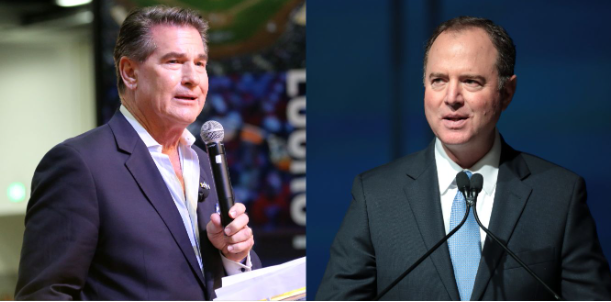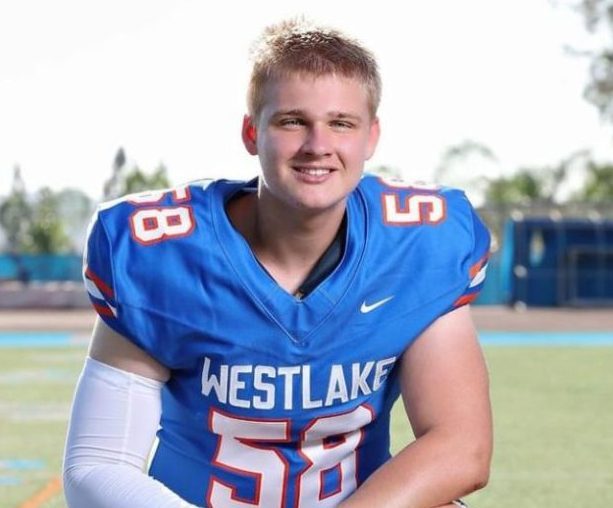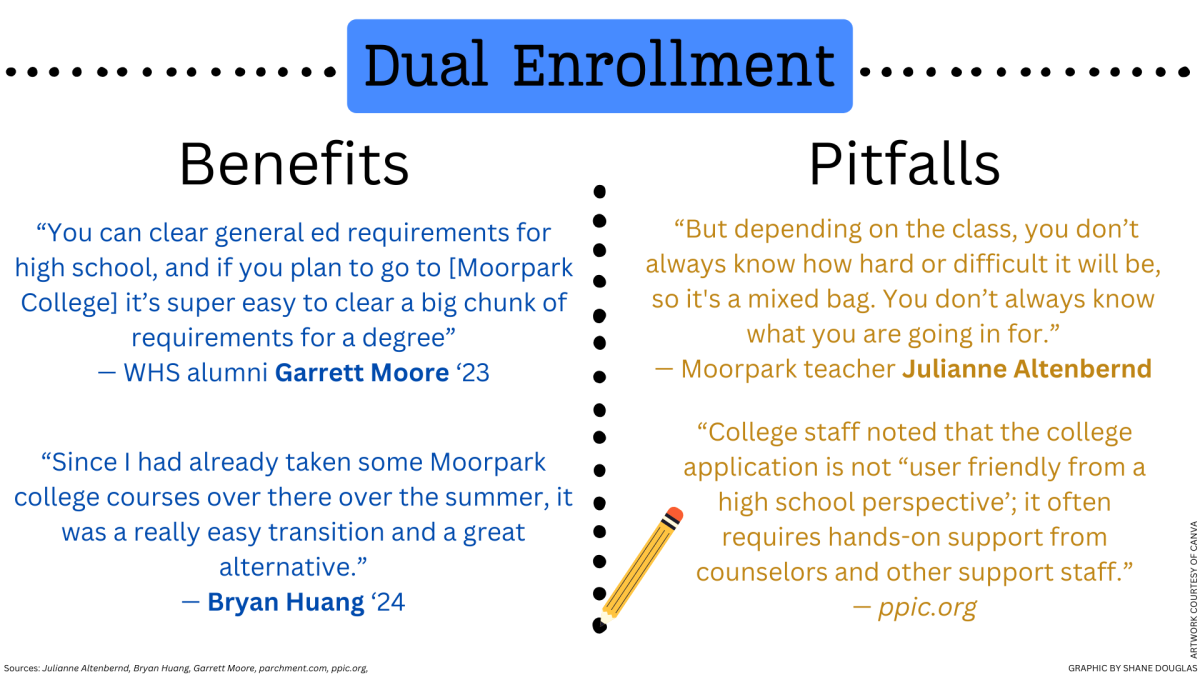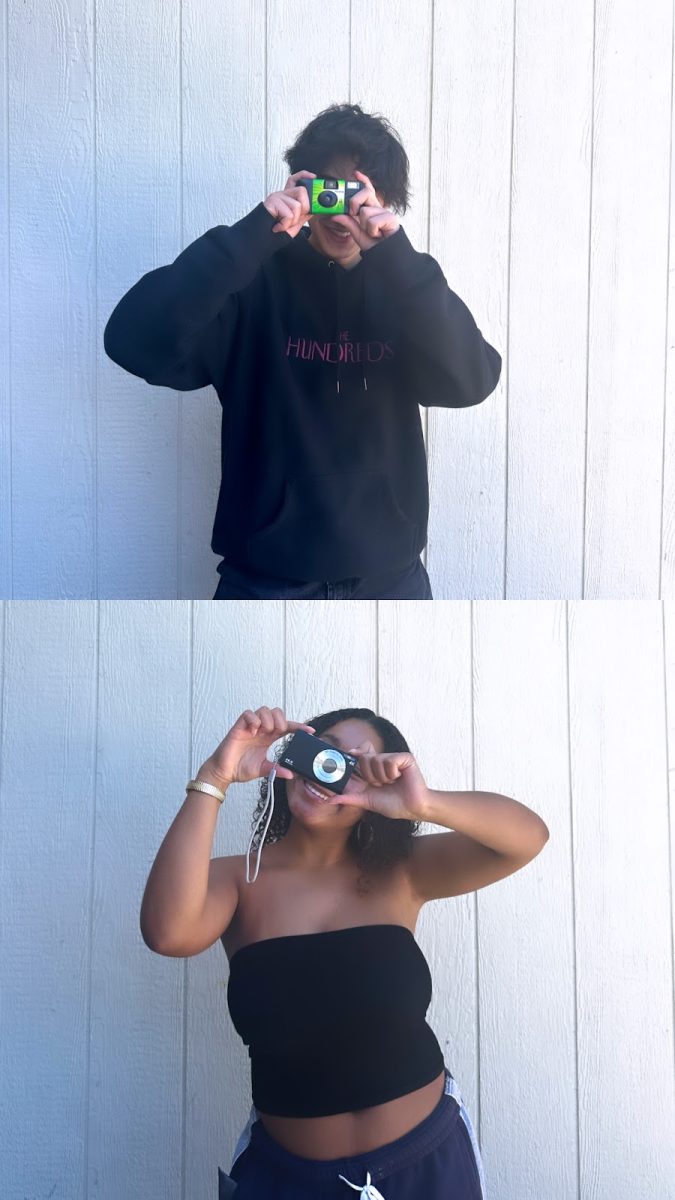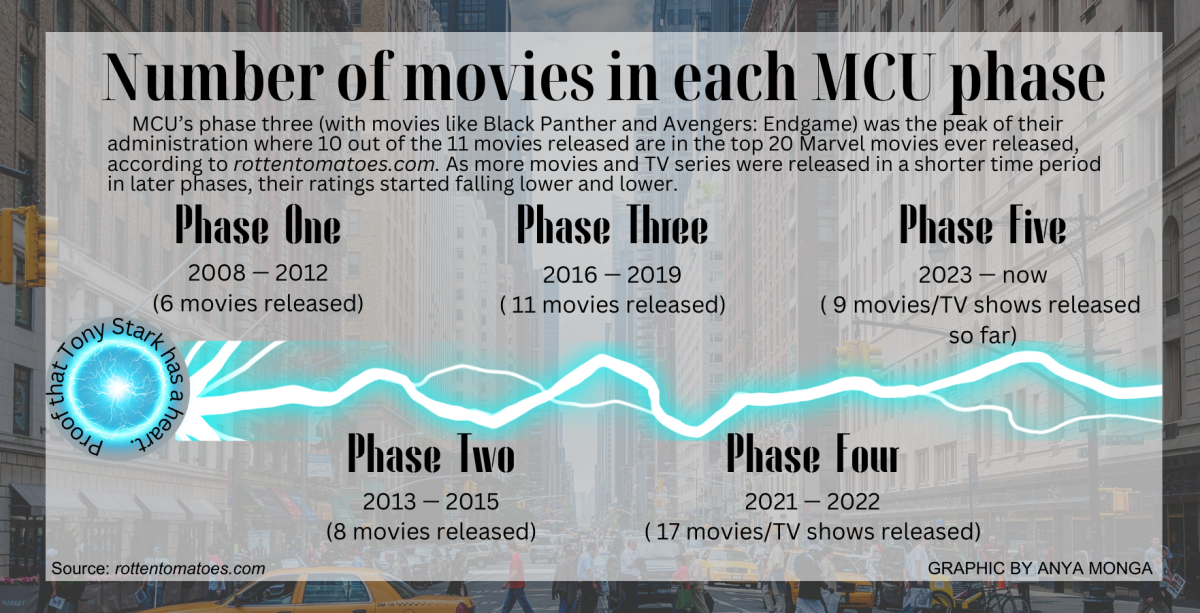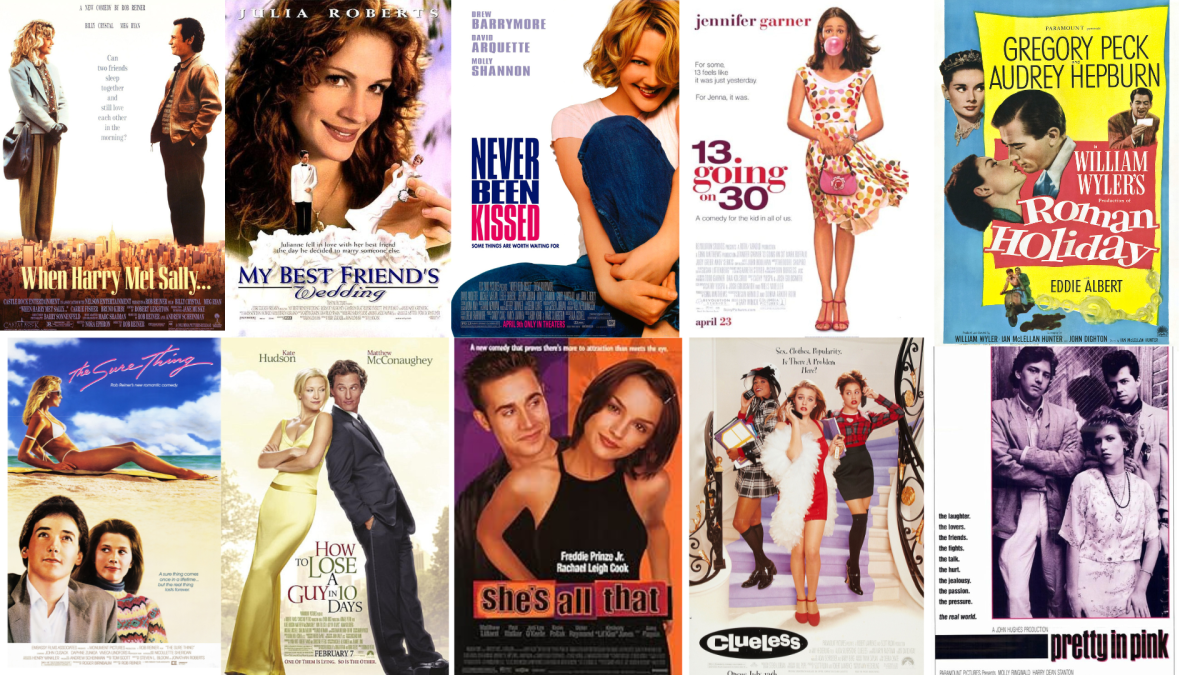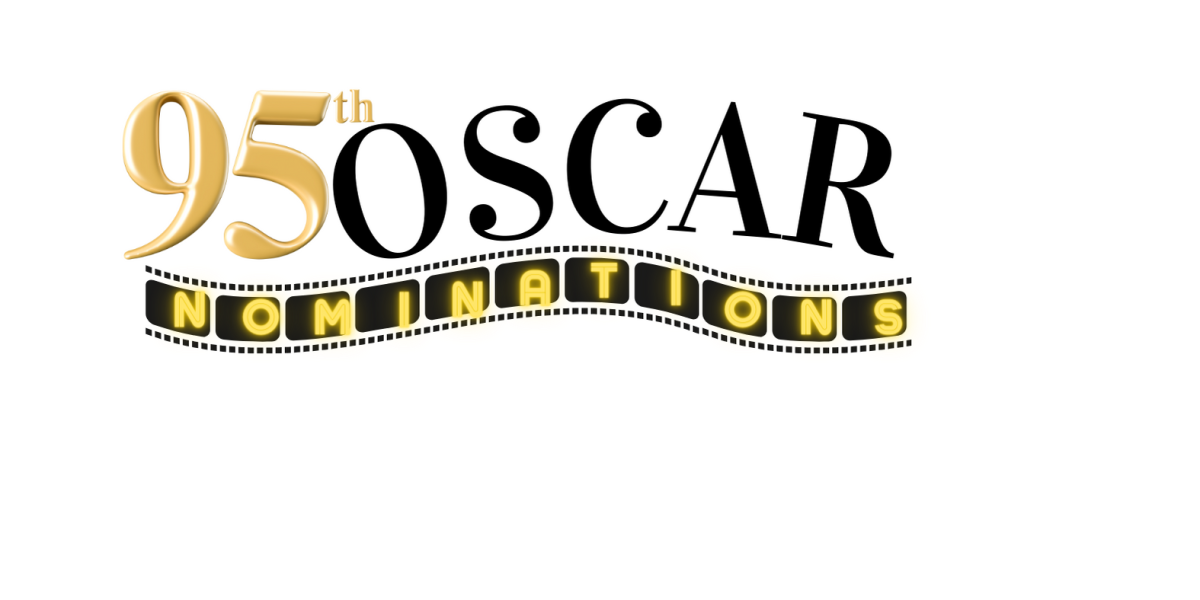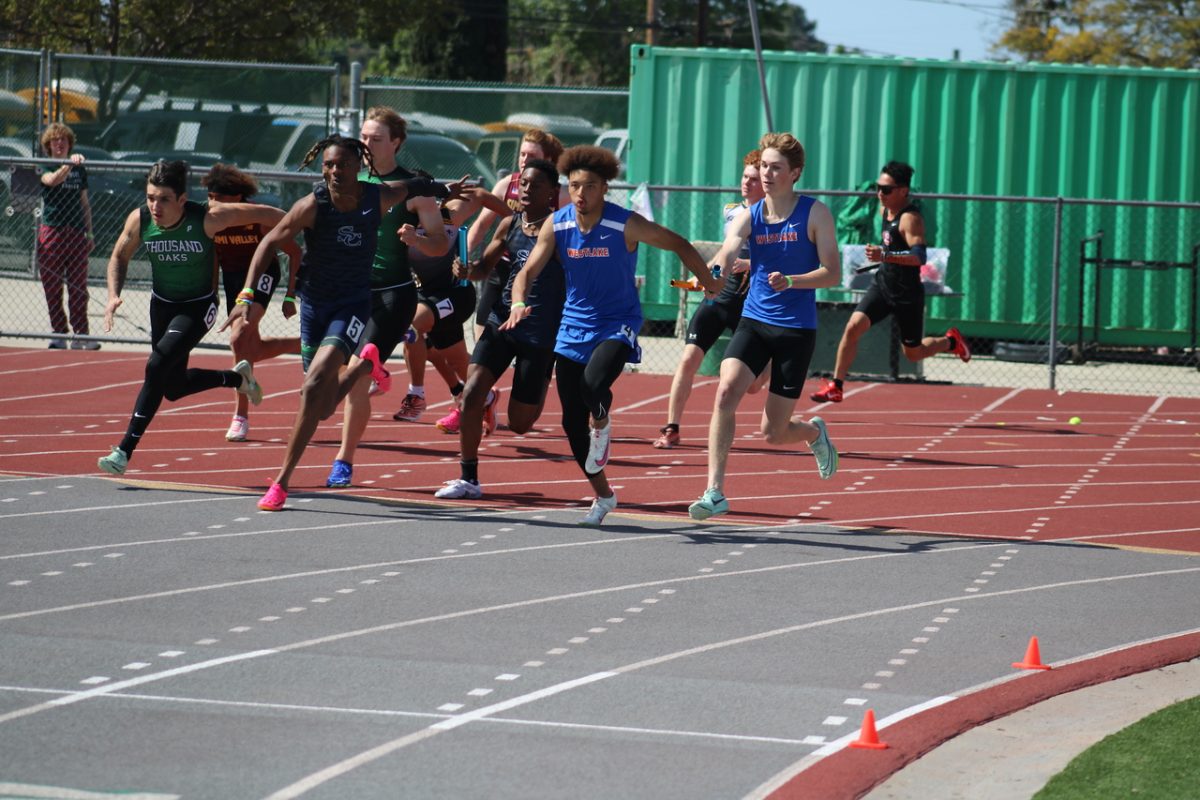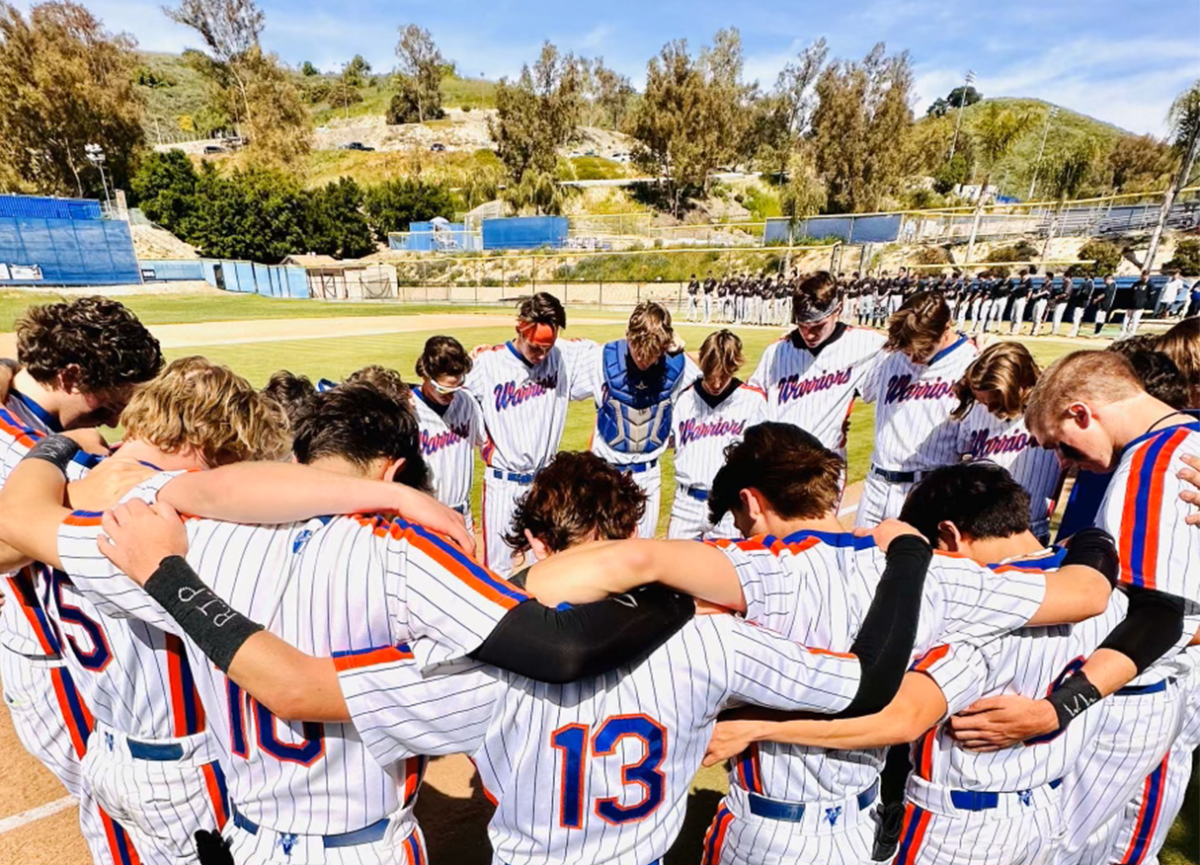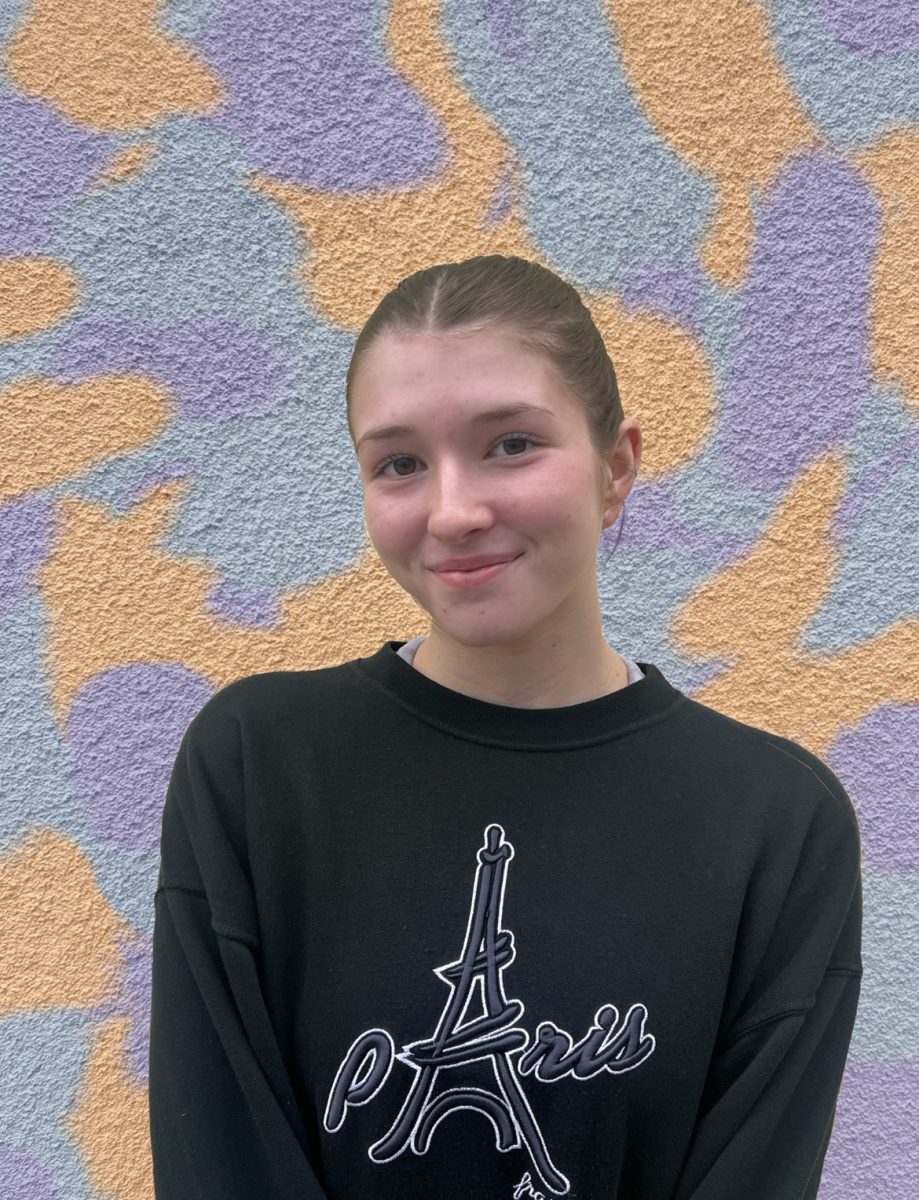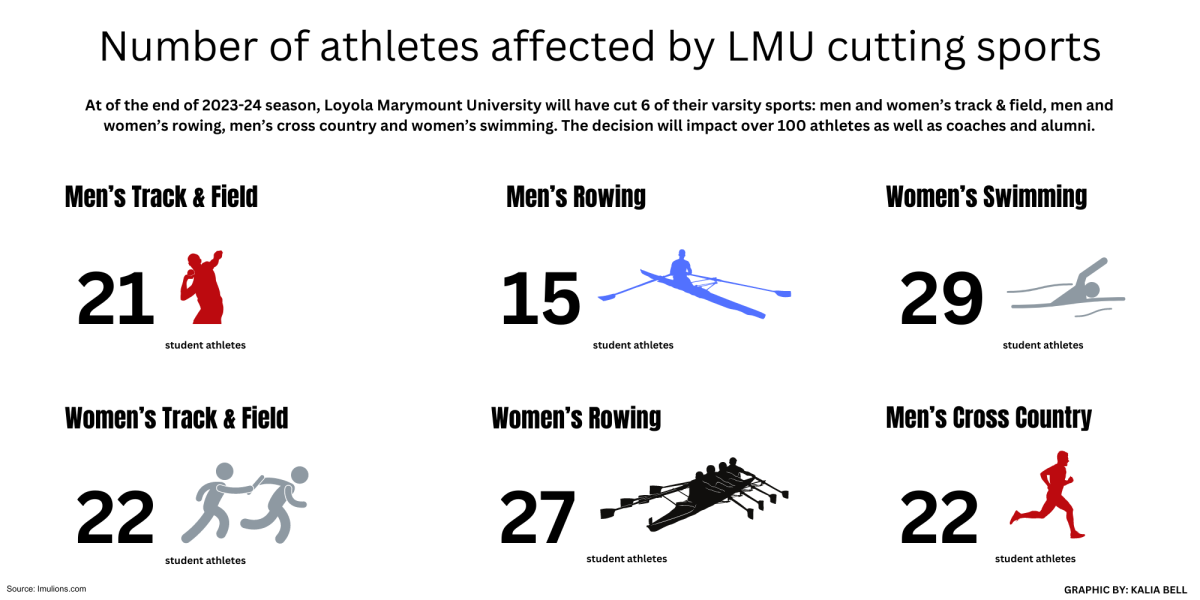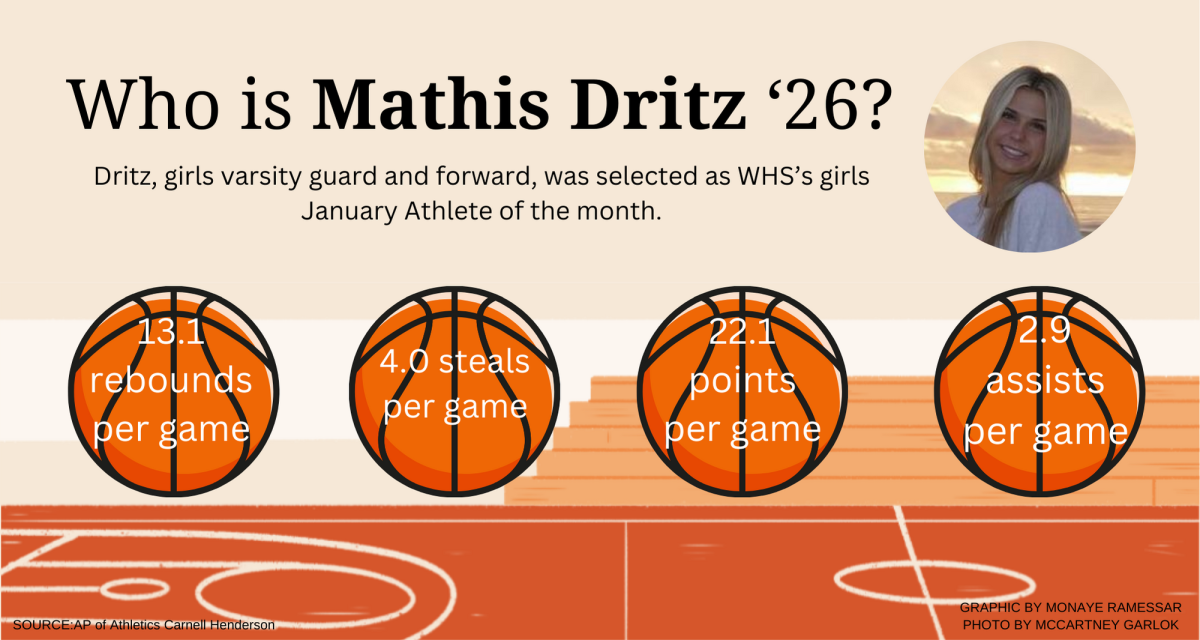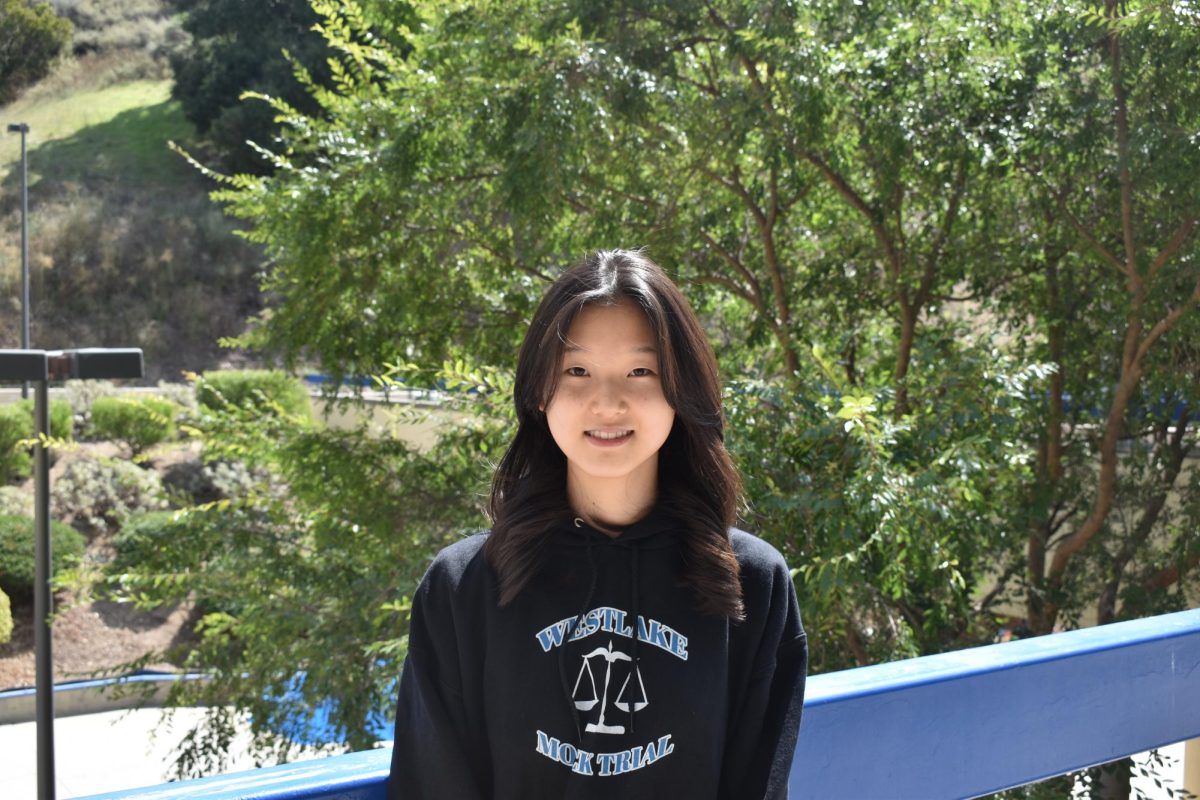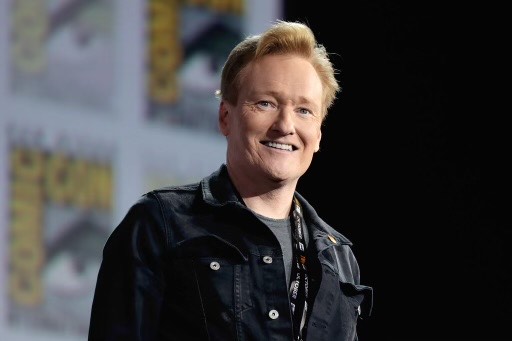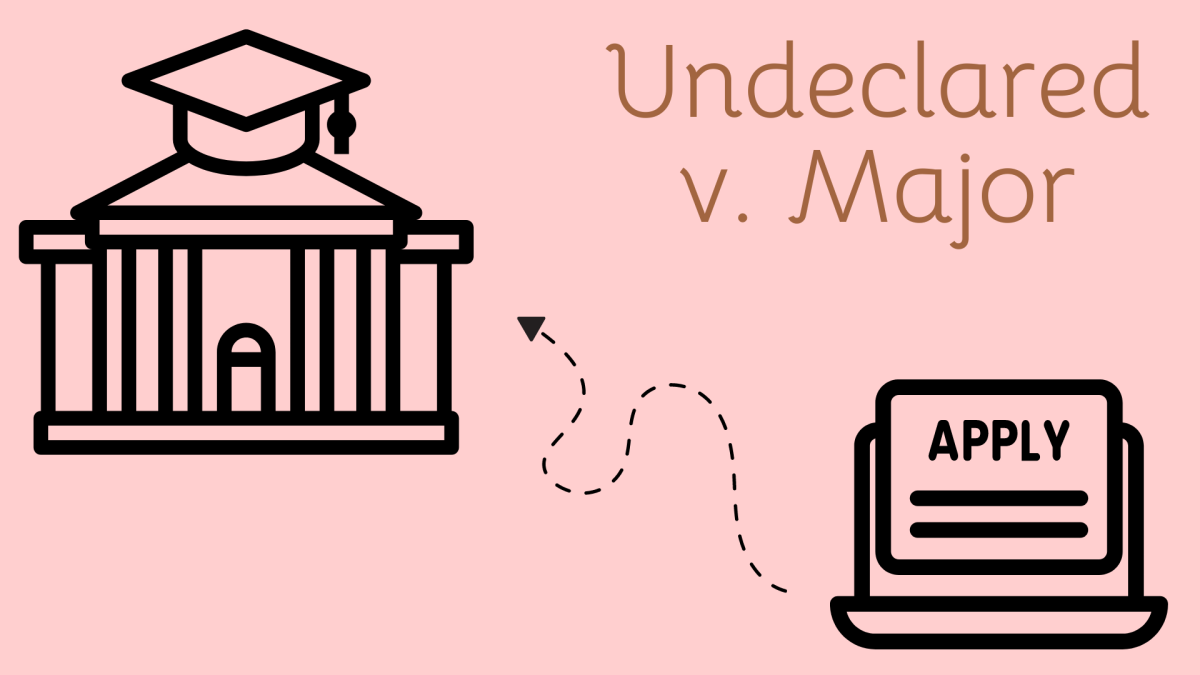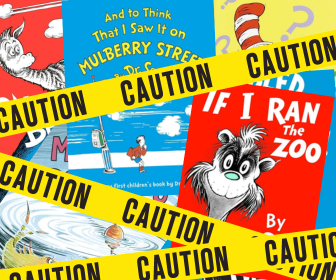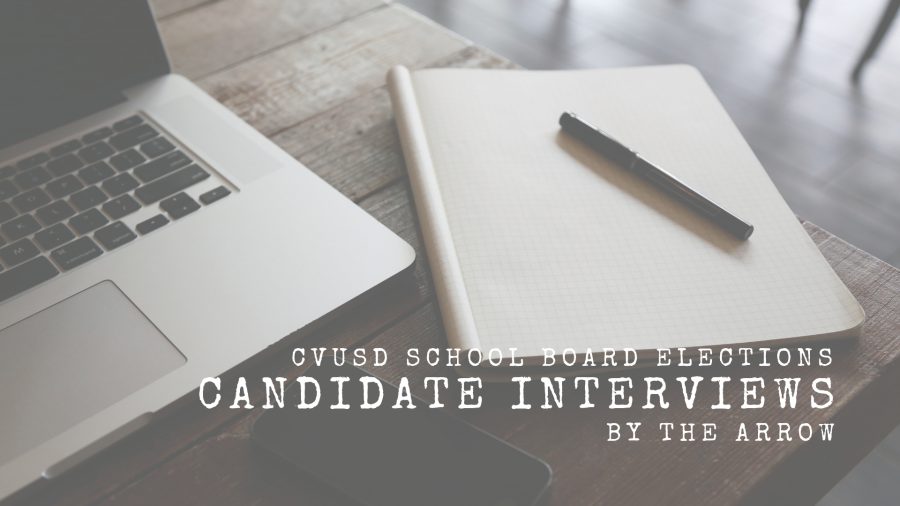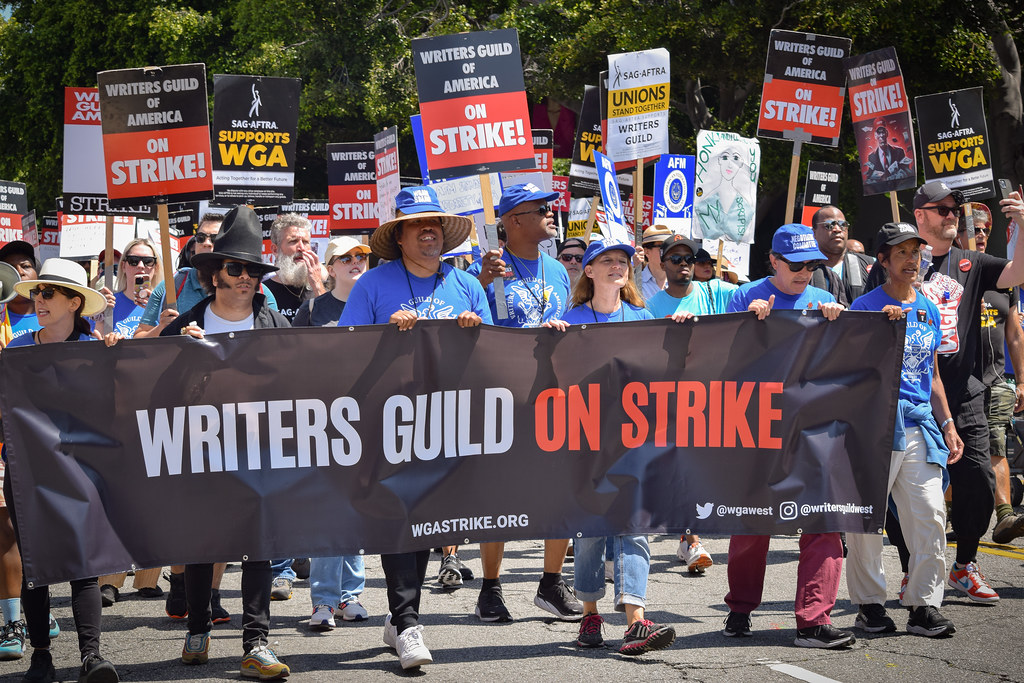Interviews by Megan King ’19, Caelyn Pender ’19, Milla Wu ’19
Student reporters from The Arrow, The Panther Prowler, and The Lancer conducted joint interviews of school board candidates in September. The opportunity to be interviewed was offered to each of the eight candidates, and seven candidates participated. Mike Dunn declined to be interviewed.
The interviews were held at Thousand Oaks High School; each newspaper prepared a few questions to ask the candidates. The questions in this article are those asked by The Arrow. To view the other questions, visit the websites of The Panther Prowler and The Lancer.
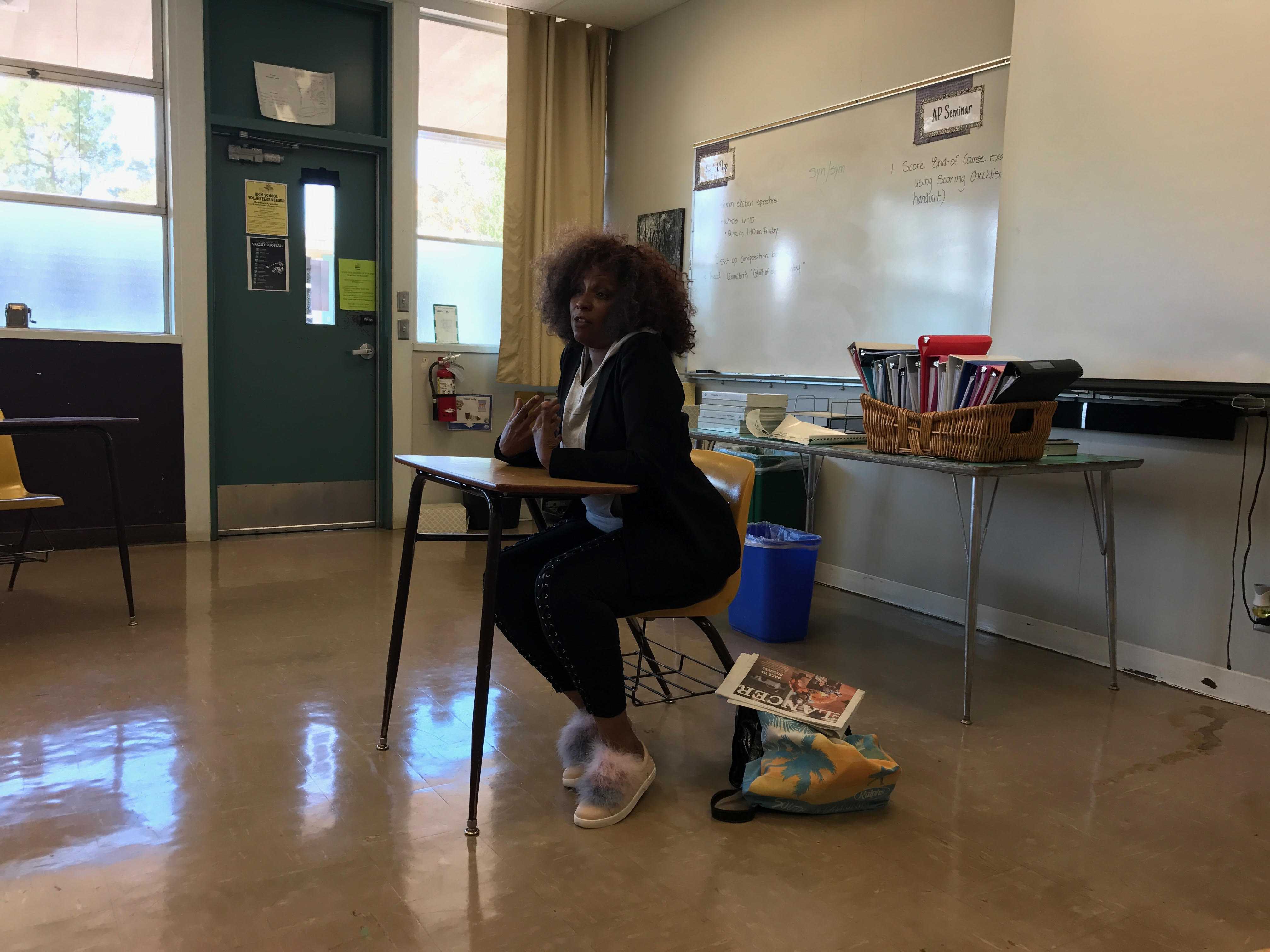
Patrissha Rose Booker
If you had been on the school board last year, what would you have done differently than the current school board members?
I would promote unity. I’m all about promoting unity and it seems like the school board is kind of divisive. I have taken courses in mediation. I’m just about promoting unity and I know how to talk to people and I think I can bring people together. I think you need to find common ground so you can get back to what’s important, which is the students. So I would promote unity.
What is your opinion on the core literature book policy 6161.1 and how it was passed and then how it was implemented?
I did not agree with it at all, and that was one of the reasons I decided to run. I grew up in a household that was full of literature and books of all kinds, and I think for a selected few to make a decision in the way it was done, I think it was dishonest, I think it was insulting to the teachers, I think the students should have a voice. I mean, I heard, I was watching one of the videos online where it was said the students were cut off from speaking at one of the meetings. I just disagree with it, I mean, and I definitely don’t think there should be a committee with parents picked by the school board members because you’re going to end up having bias and it’s going to create a lot of problems and it will probably end up with the school district having a lawsuit. So, yeah.
What role do you think parents should play in their child’s education, like in what way should they participate?
B: I think they should be participating in every way. I don’t think many parents, because I live in a low-income neighborhood. I lived in…I grew up middle class. I live in a low-income neighborhood now, Los Feliz. If you don’t know where it is, Chef Burger, 7-11, that’s what I tell everybody. Near Conejo Elementary School. And I think a lot of times parents, because, that’s why the policy was easily passed, because some of the parents, they just figure my child is not cared about, ignored, and they feel voiceless, so they figure why participate. It’s going to be so, parents, I think there should be more outreach to parents in all neighborhoods. Mr. Rogers says who are the people in your neighborhood, who are the people outside your neighborhood? I don’t think school board members reach outside the neighborhood to find out and talk to the parents, and I’m willing to do that because I can talk to parents from low-income families to middle class. I’ve done it, I don’t have a problem with it, so. I think there should be more outreach. Parents should be completely involved.
In your opinion, what do you think it the most important issue in the election for school board, and then what is your stance on that particular issue?
Like … unity. You need to find common ground, and that’s what I want to do. I want to bring people together to the table, break bread, find common ground, and common ground is even like if you like chocolate cake or a certain flavor of ice cream, and you take it from there. And that’s how you find common ground and bring back the focus, because if you don’t bring the focus back to the students, the school board is going to continue to be like it is, so it has to start with the members of the school board. You have to unite it and you have to be able to find solutions that everybody will be happy with — parents, teachers. I think the school board’s members should be mediators. I don’t think they should be changing policies. I don’t think that’s their job. I think they should mediate and facilitate and bring everybody together and listen to what everyone has to say, and I don’t think that’s being done right now.
Are there any new programs you’d like to see added to the schools during your tenure?
I, um, often go to the coffee with the chief of police, and I know that he was concerned after the Hitler speech was blasted over the Newbury High School intercom. He said he would like to see if a program could be implemented where people could go to the Museum of Tolerance, students could visit the Museum of Tolerance. I’m all for promoting diversity and understanding. I mean, I went to an all-white high school in Portland, Missouri, I was visiting my father. It wasn’t the first time I lived in Missouri, but it was an all-white high school. I was terrified. I didn’t want to go. I visited my dad for five months and [he says go to the all white school and I said okay, I don’t want to go, so he took me up to Springfield, which was like 50 miles away, there was another school, but they wanted all these requirements and it was like starting over. So I went back to the all-white school. I made some of the best friendships that I will never ever forget, and the school’s that I went to that were diverse, I was bullied, I’ll never forget it, but at that school I wasn’t. I did not experience any racism, so my life experiences which I would bring because I think diversity and understanding is important as we move into the future because, without it, there’s going to continue to be chaos, as you can see it’s chaos in the country right now. So, that’s my thing: diversity, inclusion, understanding, eliminating bullying and focusing on mental health. My issues are mostly social, because I majored in psychology, that’s my background, that’s what I bring. I bring me. I’m true, and I bring me. That’s what I’ll bring to the school board.
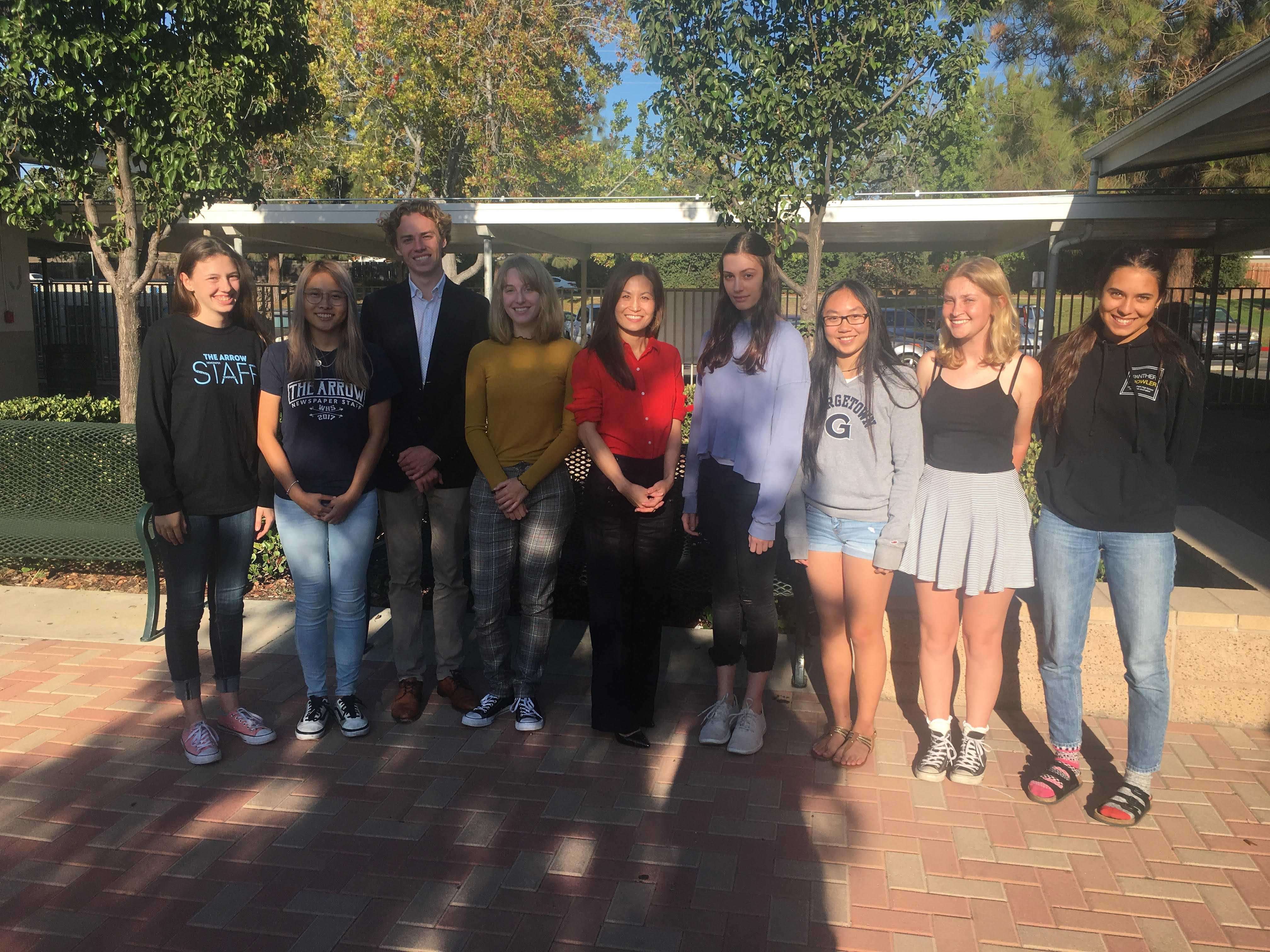
Dr. Amy Chen
If you had been on the school board last year, what would you have done differently?
There’s definitely… well I’m sure you guys have followed the school board meetings, it seems to be quite contentious sometimes but um to do anything differently, that’s an interesting question. Specifically in terms of… I’m sure I would try to work with everybody. I think teamwork would be great and presenting a united front that we are all just concerned about students and respecting every student, being tolerant of every student’s different views is most important and I think that’s really what I would just focus on, not the maybe perceived infighting or politics on that board.
What is your opinion on core literature book policy 6161 and the way the board has implemented and passed it?
As a parent I definitely appreciate a heads up on asterisked [books]. I’ve read the policy word by word and I’m sure you have too. It doesn’t take out any books and, interestingly, last year when it was implemented the second semester only five people chose to opt out. I did receive a syllabus from Taylor and it had an asterisk on it, and I decided that that book was okay. And so I don’t think an asterisk is the end of the world. I think it’s a very helpful tool because there are some parents that have six children and coming home with six syllabi and all the things that have to be signed, the paperwork, it is just helpful to have a heads up that the asterisk says that the CDE deems this book so have some mature content. I mean there are some controversies on which standard we should use, and I think the CDE standard is the least partisan for us. Any of us can sit here and argue that that may not be the best standard but who else’s standard should we use? And I believe it’s just putting a rating just like in a movie, if you guys were to watch an R rated movie — I’ve had paperwork come home before, where an R rated movie is supposed to be shown in class, and I just have to sign it and the teacher is just giving me the respect and just informing me that they’re going to show the movie.
So besides the book policy, what other issues do you think are most important in this election that you want to focus on and what are your opinions on them?
Well, I think going forward the most important issue is really to solve our enrollment crisis and I think I’ve already touched on that because we need the money to implement all the programs that we want to implement in the school. We have a great school and we can’t keep losing students because every student we lose that means there’s a chance we might have to do some cuts.
You mentioned earlier good habit programs, are there any specific programs or just other new programs that you’d like to see implemented in our schools?
In terms of health and habit or any other programs? [Arrow responds “both.”] Yeah, I think you guys have a lot of programs. I really like the anti-bullying program I know for middle school and high school you people come into the multipurpose room or the classrooms and talk to you about that and about respecting and tolerating everyone, and I think that’s really important in today’s culture to tolerate everyone and to respect everyone’s views.
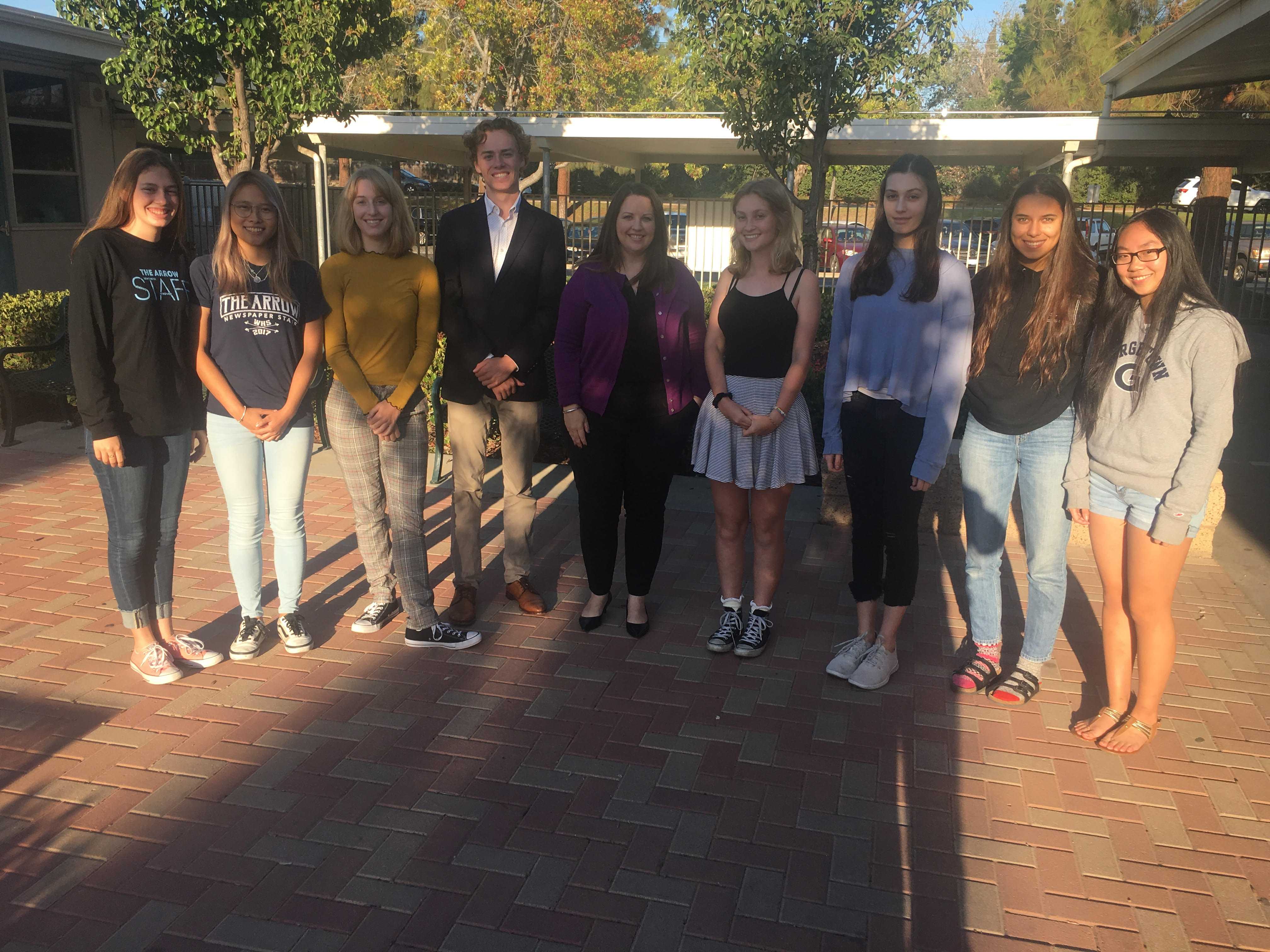
Jenny Fitzgerald
If you had been on the school board last year, what would you have done differently?
So that one is pretty easy for me. I think that when the literature policy came up, and you had a group of teachers that were willing to sit down and devise a formalized policy to address the concerns of parents in our district who wanted their children to have a formal option to opt out for whatever reason — I don’t really think there’s that many people that disagreed that there could be really legitimate reasons that someone might want their child to opt out of a particular book — but that would have been the approach, right? You would have taken those concerns, you would have sat down with those teachers, and figure out a policy that would work in the classroom for them and for the rest of their students. And I would have not written the policy on my own, not the job of school board members [Chuckles] I mean, it’s true, it’s not the job of school board members to write the policy on their own. I would have made sure that before it was passed, it didn’t contain errors in it. I would have made sure that before it was passed, we had a fully functioning plan to implement that policy, and I think honestly, had that process been followed we wouldn’t have had many of the very long and contentious school board meetings that we had.
So you talked a lot about the achievement gap, so what specifically would you do to address students whose needs aren’t being met, such as special needs kids, ESL students or underrepresented groups in school?
For the English learners, I think the programs that are starting to be implemented at the elementary school level such as English lessons for parents, there’s also some new technology use at the elementary level, for English learners— and it’s been shown that the school that’s using those programs has drastically decreased the achievement gap. So something right is going on there, that I think we can apply to other schools. We have a child with special needs, so that hits close to home, and it worries me that our child’s getting older, school gets more difficult, and that gap grows. And it’s one of the main concerns that I hear from parents, even when I’m canvassing and going door to door, that issue of what are we doing to address the needs of our students that have special needs, comes up on a very regular basis. So I think we need to look at ways we can prioritize funding and also that’s why Im talking about advocating at the state level for funding, because that’s where it all trickles down so that we can find ways to diagnose children earlier and provide the necessary services in school on campus during regular school hours. Because what’s happening is our resources are so thin that many students who have those needs don’t get diagnosed till a much later date, and you’ve kind of missed a realy prime opportunity to help them and when they are diagnosed it sometimes takes parents going outside the district to pay out of pocket for that diagnosis, and then also having to go outside the district to get the services they need to help them. That’s logistically difficult for many families and financially really difficult for many families. So I think that’s one of the main things we can do but it does all come back to funding.
So what role do think parents should play in determining their child’s education and in what ways should they be involved with the board and community?
So as a parent, I support parental involvement. As parents, that’s part of our job, we should be involved in our kids lives, We want to know what’s going on with them when they’re in school and outside of school. So when parents say they want to read what their kids are reading in class, that’s fantastic because you can talk to kids about what they’re learning after and that helps them grow and develop. So I think we should support that type of involvement as much as we can. There’s a difference between that and directing policy. So parents should be able to come to the board with a problem, they should be able to ask the board to address that problem and they can even be a part of coming up with the solution. But it’s never to the detriment to another group of parents, or should never be to the detriment of another group of parents and it should never be in a silo. it should be, again, a collaborative effort with teachers and district staff and other people that have a stake in whatever that policy is.
What other issues that haven’t been brought up do you think are really important in this election and what are your stances on them?
So one of the big issues that we haven’t talked about is transparency. To me it’s really important that as community members, we can trust what our board members are doing. When we have funds being spent without other board members knowing, against board policy, that’s not good. When we have policy being made and violations of the Open Meeting Act because we’re not handing out changes to policy to our community members, that’s not good. And when we don’t have transparency, to me, that signals that something is wrong and we’re trying to hide something, and that grows distrust within our community, which leads to a very unproductive environment. So that’s one [of the issues.] I think we hit on all the bigs topics that at least I’m running on. Wait, can I add one more? Students. So, to me, that is an area that we haven’t tapped into enough. And one of the issues that I looked into was student representation on our school board. I know that we have student reporters come. I was to curious as to why we don’t have a student member, at least one that is an advisory vote. When I was on the community college board, we had at least an advisory vote, and we were part of everything that went on on the board. I did look into it a little bit. I guess in California they passed a law that allows students to petition for a board member seat with an advisory vote. I believe LAUSD did that a year ago or so, and that’s something I’d like to see in our district because we need that perspective. I love student reports, they’re one of the highlights of school board meetings, but we need a student on the board who is giving their perspective and who is reporting back on how students are feeling about the issues that the board is addressing. So that’s something that I would encourage students to look at because it’s there. The board actually just talked about the policy at the last meeting. You have to get a certain number of signatures and then the board should approve it, and I think that would be a really good positive step in the right direction of us taking account of what are issues for our students and how they feel about things the board is addressing.
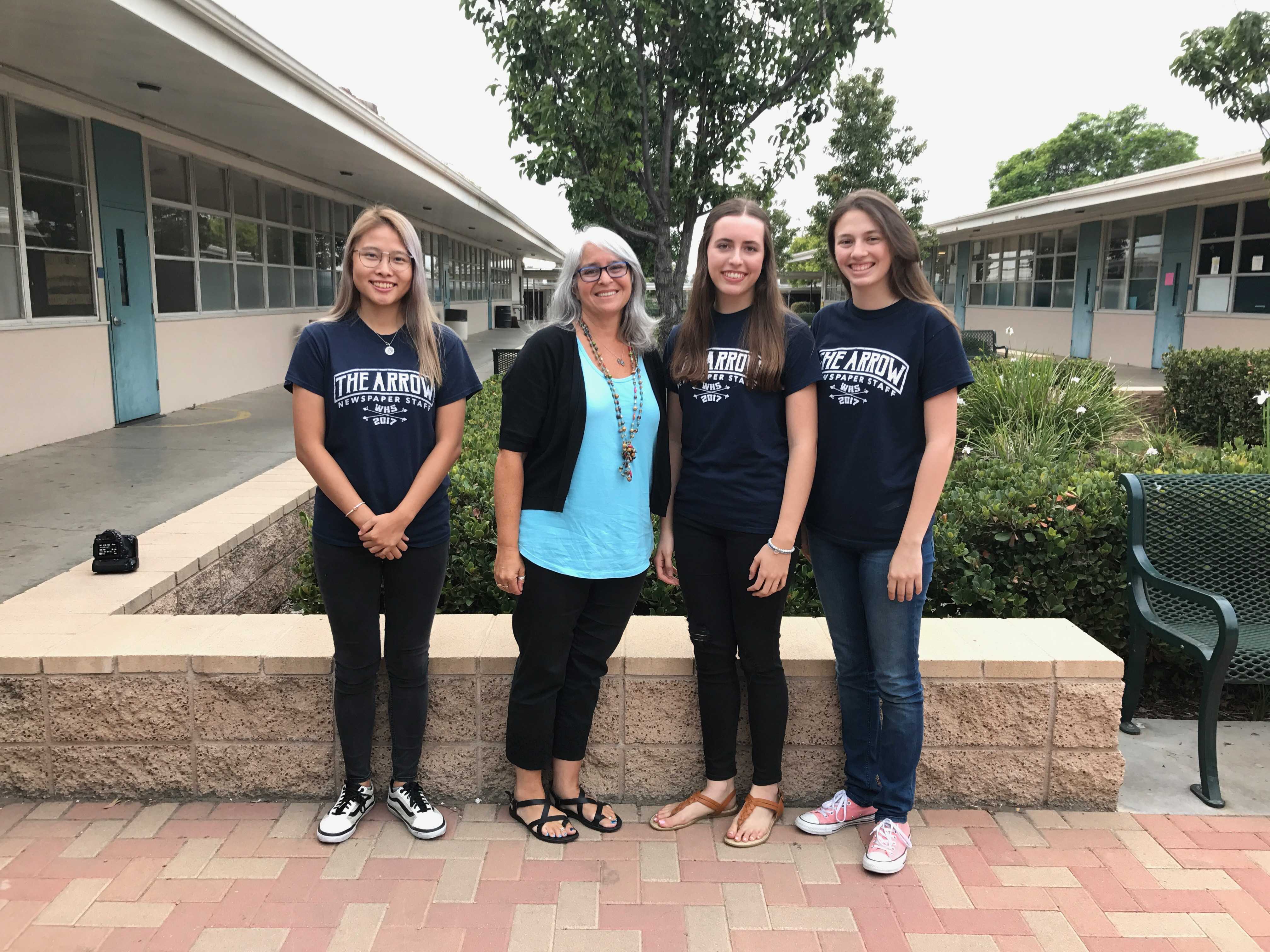
Cindy Goldberg
If you had been on the school board last year, what would you have done differently?
Where do you want me to start? Last year was a really interesting year. I’ve been going to school board meetings, I’ve been to almost every school board meeting since 2007. Over the past few years, they’ve sort of devolved a little bit, and last year was the first time I think I have ever seen such divisiveness that was, in my head, manufactured because if you ask any parent on any campus, there’s no — parents love their teachers, for the most part, but to take — to have everyone unanimously agree that yes it’s a good idea to codify a practice and then to agree that here’s the process for that codification, which really is just should have been could have been taken care of in the administrative rights which we’re getting in the weeds but that — you guys have all been following, yes? — so that just says here’s the policy that already exists, here’s our practice, here’s how we implement that policy so let’s, here are the guidelines, so a guideline for an alternative assignment, a more robust alternative assignment that doesn’t call out any, make any student feel bad for wanting to or having to avail themselves of that opportunity. So, they put in a procedure, right, to get to that point, to get to a better policy, so they call in the experts — they call in teachers, administrators, board members who have invested interests so that it’s in-line with what they’re thinking. And they move forward. Well, then it fell apart because people started chanting, “let parents parent” and “let teachers teach.” Well, everybody wanted the same thing — everybody wanted parents to be able to see the books, to have a great thing for their kids. It just didn’t happen. In my world, I work with people from all over the district — kids, administrators, parents — and everybody really wants the same thing, but if they don’t listen to each other, they’re not going to get to the same thing, so discounting voices never works well, and that’s sort of what happened. I’m not a fan … If you have a procedure, you should follow the procedure. If you need to change it, then everybody should come to the same, come to an agreement about changing the ground rules. So, I just think from start to finish — and once you have your win, then don’t keep hammering people who already feel bad and disenfranchising. Truthfully, the greatest shame of all of it is the disenfranchisement and the devaluation of the teachers who really, some of them are better at it than others, but all of them really want what’s best for their students.
What is your opinion on the book policy 6161.1? What is your opinion about how it was passed and how it was implemented?
So, again, there was no consensus. Everybody agreed to the ground rules and then they went out the window. My opinion of the policy is that moving forward, it’s untenable. You cannot bring forward a new book because the way it’s crafted, there’s asterisks that don’t exist anymore, so you can can have a brand new book that somebody brings forward that they think kids would love. So, how are you going to work that into the committee? And if you’re going to call it a parents committee, then make sure that the people on it are parents. Quite frankly, we can discuss it. That’s a whole other topic of whether or not, of how representatives, I don’t think parents voices should ever be discounted. I’m the chairperson of the District Advisory Council — that is the parent group and it gives parents voices. I am all about more voices, not less. But, if it’s a parent committee, then have a parent on it. Don’t just say somebody who lives here and I know who I want … It just doesn’t make sense to me.
What role do you think parents should play in their child’s education and in choosing the curriculum?
I have three sons. And every year, I have to sign a syllabus that says, “Here are the books that my children are going to read.” I happen to be a parent who thinks they should be able to read whatever and we can have a discussion. If in my family I don’t like certain topics or certain language or certain whatever, then I would use that as a teaching moment for my family and sort of review the values that we have. But, in a classroom setting, you do live in a broader society, so navigating those avenues with somebody that’s trained to help you sort of expand, you learn a lot of literature. I’m a big English — the biggest fight I ever got into with my son was he told me English wasn’t important. Now, granted, he was about four and really liked science. But, I really couldn’t look at him for a while because I think that being able to communicate and being able to learn through books, that’s just powerful, so I think parents have a role when their own child’s curriculum — curriculum is set by the state with teachers crafting it — should a parent be able to, if you’re having a curriculum committee, should there be a parent or two on there? I think that’s a good idea. But, that would be to inform the educators about how that might hit a parent because I work with a lot of teachers and administrators. And a funny thing happens when you’re in a meeting with them. Sometimes they forget that they’re parents, so I will, I’ve had this conversation with a number of them, said, “Okay, wait a second, take your teacher hat off and put on your dad hat or put on your mom hat, now how does it hit you?” And they’re like, “Oh yeah, maybe we should redo it, maybe we should come at it differently.” It’s just a reframe cause they may come to decision, and they’re just gonna put it in a different context and do it in a way that’s better for kids which is really the ultimate and only goal and for teachers because they have to be able to manage the workload.
Apart from the book policy, what other issues do you think are most important in this election and what are your stances on them?
The most important issues in this election, I think, are rebuilding the trust and the communication between all stakeholders. I think we are woefully broken. Morale in the, amongst — once we hit the kid level, that’s when I sort of got involved. You could see the trickle down. You know, morale was bad for a while, then it got really bad, and then, it started affecting the teachers which affects kids in the classroom. So, I think we need to rebuild that public trust in our schools. We used to be known far and wide as a model for other districts. Now, I have friends that work in Chula Vista in Maintenance, in Poway in technology, and they’ll call and go, “What the heck is going on in the Conejo?” Because, we’ve made national news, not for any great thing that we’re doing, cause really, some of the stuff that we’re doing — I mean, you guys are all part of award winning programs, around you — art, music, athletics, educational opportunities, programs like, you know, Westlake High School, your cadaver program — there’s only one in the country! Why are we not talking about that? Why are we not celebrating that? Why are we not getting more things like it to draw people in, shouting our successes? Admit we have some issues, but I think we need to rebuild that trust and open communication because nobody talks to each other, they’re all afraid, and that part is so sad.
Are there any new programs that you’d like to see added to the school system?
You mean brand new that have never been done, or beefed up? Like here at Thousand Oaks High School, we have the Lunch Bunch peer mentor program. I think that piece could be expanded and actually brought to all the high schools because it really focuses on social and emotional well-being of kids. The BreakThrough program — I don’t know if you guys are aware of it, okay, if I say BreakThrough, does that mean anything to anyone? So, BreakThrough started off as a way to mitigate suspensions or expulsions for drugs, violence or smoking, right? It’s a holistic approach to get kids and families the tools that they need to be successful because usually those things aren’t — they don’t exist in an island, there’s a reason why those things are happening, right? So, you go through the BreakThrough program, and it used to be mandatory, right, you got referred and then your suspension was expunged. It’s morphed to kids who are in crisis, kids who just are overwhelmed for all kinds of reasons. You can go, you can self-refer, your parents can self-refer and you go through the BreakThrough thing, and they are, they do phenomenal work, and they have a counselor who will just come in and check on you. And one of the things that we do with the foundation is we got, we piloted another, they had one and a half counselors which was not enough because with the amount of vaping that’s going on, they could have spent, you know, their entire time dealing with vapes and there’s way bigger issues than vaping, I mean in terms of real crisis, so…but we got them another half-time counselor, which now the district saw the impact of that, so now there are two full time counselors. If we could grow that program, I think the social-emotional well-being of our students would be so well-served. I think there are a lot of creative things going on at our elementary schools. If we could build them, sort of, and then scaffold. So have the elementaries and their middle school feeders work together and up to the high schools so that everybody is building, so you have a place to go. If you are doing a great art program in elementary school but you go to middle school and there’s no drawing or that kind of art — there’s always choir and band and strings — but if you have nowhere to go, then that doesn’t help, you know, you loose it. So, there’s a whole…don’t get me started because I could probably be here for two hours.
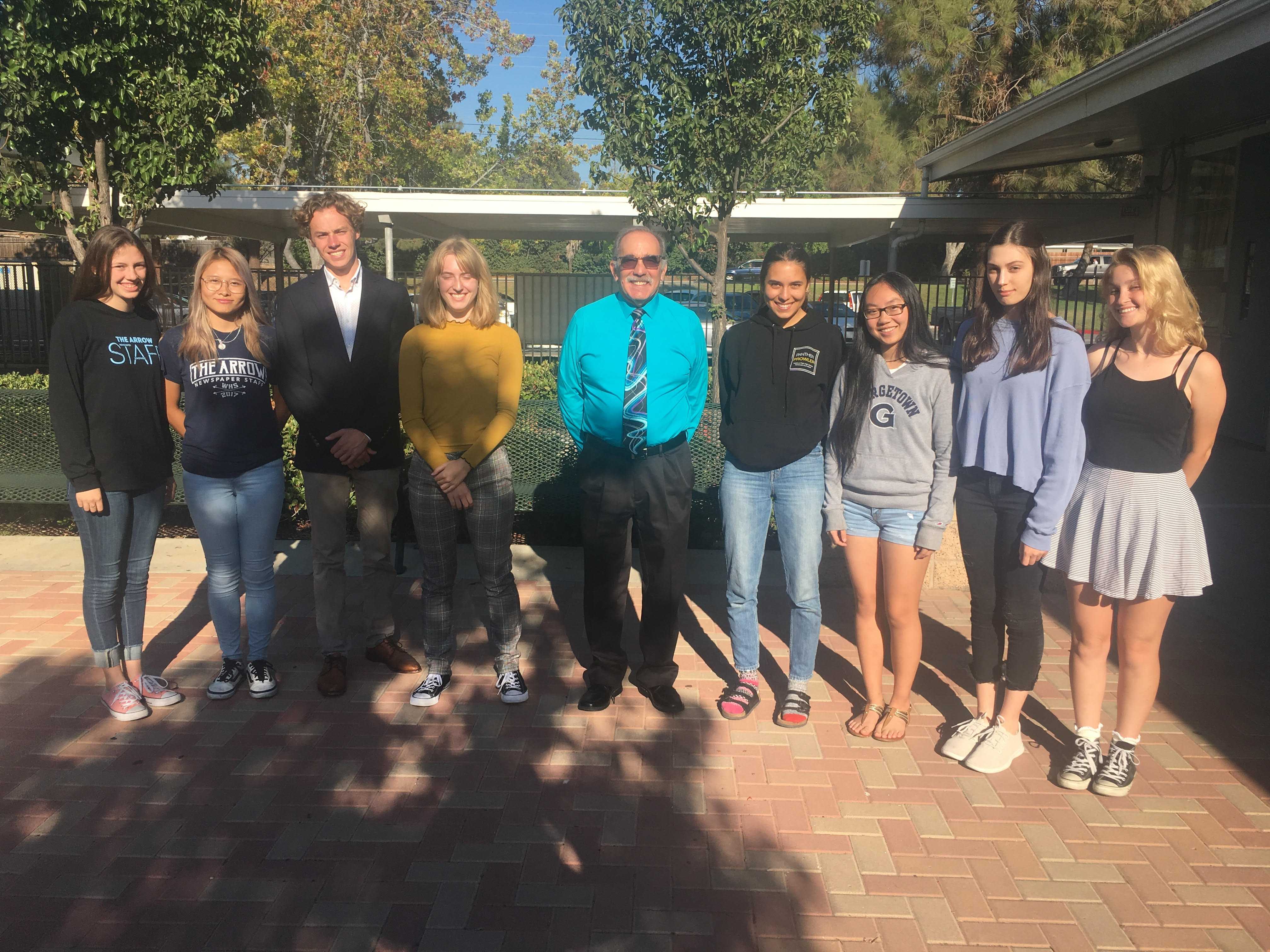
Bill Gorback
If you had been on the school board last year, what would you have done differently?
As I said, first of all what I would’ve done is gone around to all three of your high schools and scheduled listening sessions, so the teachers feel free to participate and so the teachers can feel free to be on a panel and say how does this policy affect them, how does it affect the students. Um, so I would have, I would be more open, more open to listening at listening sessions, I would be more open to listening as students speak. I think sometime you got up and spoke and you made passionate speeches and it was wonderful, and people in the, as I call it, the cheap seats, applauded, and the people on the dais said thank you very much, next person, you know. And it was basically, you know, you were ignored. So I look, I mentioned it yesterday, I look at a position on the board as just another arena in which I’m gonna be a teacher, and as a teacher, I want to show my students the respect that I’ve always shown my students, so I would do that. That would be part of it. And, again, I think we made such a big deal about attacking community members that disagreed with the board. You know, like today, there was a negative article, written in The Acorn, or a negative paragraph, written in The Acorn about me. That’s fine. You know, they made fun of the fact that I drive for Uber when I have time. You know what, if that’s the worst they can find on me, then so be it. But I’m not going to be so personal as far as criticism. You know when you’re in the public eye it’s like Whack-a-Mole. You’re sticking your head up and if you’re lucky enough not to get hit by the mallet, then you’re lucky. But if you’re hit by the mallet, you stuck your head up, that’s what you expect. So, you know, listening to people, not caring, not making a personal vendetta, um, I would have done those things differently, and, like I said, going around to make sure even more people have more participation.
So I know you talked a lot about the divisiveness of the school board. So how do you think you could repair the culture of the board and make it more inviting and open instead of like the ad hominem you were just talking about?
You know, I actually tried [something something something — 33:40] As I said recently in an interview. As a counselor, I’ve experienced this already. I’ve had people who have come into my office [something something — 34:35] I was saying at Westlake yesterday, that I’ve had people coming in with a lot of hostility for the counselor, to put it politely, which they didn’t necessary put it politely when they came in, and I enjoy taking people who are very fixed in their position and having them listen to both sides, being a mediator. I’m a trained mediator. And people, listening to both sides, and saying, okay, this is what you want, but what’s the least you can accept, because we move from here to here. And we go to the other side, and we say what’s the least you can accept. And now the gap is here instead of here. And then we can work things out. If I give you a couple points here… So what I would try to do is meet with the, you know, meet with both sides, try to get both sides to a position where they’re accepting what they can, and, um, and solve problems that way. I’d like to be a problem solver instead of the divisiveness that we have on the board. I think that even the main issue, the book issue, I don’t think this is a thing about parents versus teachers. I think we all want the same thing. We all want our kids to be socially and emotionally safe, and we all want rights that if our kids don’t feel that way in a given text, that they can opt out without being uncomfortable. So there’s a lot that we all have. That’s the kind of way that I would try to solve the problem, say what are our commonalities, not what concentrate on what our differences are.
So besides the book policy, what other issues do you think are most important in this election and what are your stances on them?
I think finances, knowing the financial, as I said, I know that our budget for the past years was $196 million. That’s our expenses. Our revenue is $193 million. I know you’re all math students enough to know that that presents a problem. Um, so looking to see where we can make those cuts so we can balance our budgets. We have to make up $3 million somewhere. You know, I think putting in the state law you referred to before, I think now that’s going to be an issue in this election. How do we do that? Of the fact, I mean, in our district, this was actually started by two guys, I think who came from your school, who said they had done a lot of studies, and that the teen brain just doesn’t start functioning fully until at least 9 o’clock in the morning, or, for the state law, 8:30. So listening to people, I think, would be an issue.
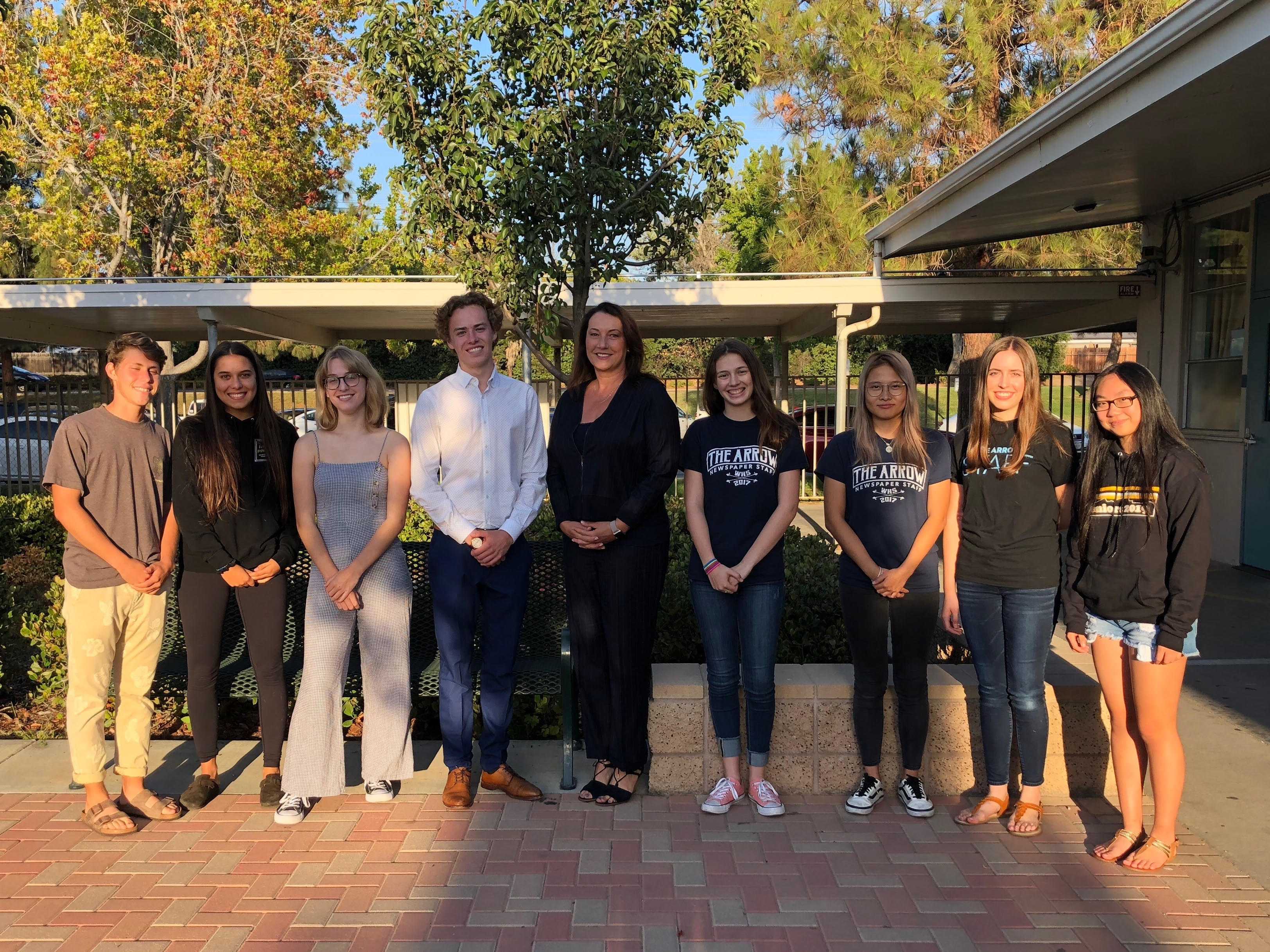
Angie Simpson
If you had been on the school board last year, what would you have done differently?
Ok, so 2017, I’m trying to think of the significant events. Are you referring back to primarily the dominant topic of the book policy? [Arrow clarifies] Ok, so I believe that if I was on the board, that my leadership skills, interpersonal skills, and ability to relate with different community stakeholders across the Conejo Valley would be a huge asset to the school board, and potentially, there might have been with my skill set on the school board less political drama and jockeying regarding the parental notification and alternative assignment policy. So that being said, I would have approached that policy as dynamically as the board did but hopefully with less friction from various groups in the community because of my communication style and ability to effectively discuss and highlight really what the state suggests, and so I brought that for you because I thought that would be really helpful because I think that the district’s selection policies that are highlighted on the California Department of Education website really outlines what ended up coming to fruition and being approved by the board, but maybe the journey of how it got there could have been a little less rocky
So, this kind of continues this same theme. What is your opinion on the core literature book policy 6161.1 and then how it was passed and implemented?
Okay, so I definitely support one hundred percent parental involvement in education at the high school level, K-12, so what my suggestion would be, moving forward as a board member, is to develop a curriculum counsel and that is a practice that is implemented in the Las Virgenes School District since 2009 and their policy is easily accessible on the website, so you can check this out. It basically creates a, it’s a teacher driven process that is also supported by various stakeholders from various academic touch points including administrators, special education, even parents and community members that would be part of the process and then part of presenting to the school board. Ultimately, the school board has the final say on curriculum. That was how our country was founded after the 1600s, and I believe in that process wholeheartedly and I believe in local control and community input in education.
How would the people on that curriculum counsel be selected?
I think that that’s definitely a process that needs to be vetted by a broader group and, as an individual, that wouldn’t be a recommendation I could make. I think that that’s a really important question that our community, especially our teachers and our administrators here within the district, need to feel really good about that so I think that they need to be very much a part of that process
So you said that you supported 100% parental involvement, so what role do you think that parents should play in their child’s education and how should they go about doing that?
I think that if a school is going to be presenting information in a classroom there shouldn’t be a secret about what that information is going to be and when it comes to understanding what mental health challenges and situational challenges face our students, one out of ten kids, high school kids nationally has a diagnosable mental health disorder. One out of eight high school students has suffered a traumatic event, and so when you think about you’re in a class of 40 kids, that’s four kids that might have something pretty significant going on that that you may not see as a peer or that a teacher may not recognize, so I think that we have to protect those kids just like we protect any other fragile student population and so that’s where I think you have to have a really transparent line of communication with parents. They may not be full time parents. They might be temporary, you know, living situations for kids, so that’s where … and it also may be a student knows themselves and maybe they know that they have a fragile mental health profile where if they’re going to be reading certain content triggering could be something that might happen to them, and maybe it’s happened before, but that wouldn’t be the business of perhaps a general education teacher or a fellow peer so I just think we can’t judge and even if that policy helps one kid a year or five kids a year, that’s better than not having information out there so that parents and students can make their own choices that are best for them.
In your opinion, what do you think is the most important issue in this election and what’s your stance on it?
Right now, to me is keeping our schools open and we are facing a radical budget crisis across all of our schools which is nothing new especially here in the state of California, but for our Conejo Valley, we really have to figure out a way to increase enrollment to subsidize our funding, and the great news about that problem is that we have thousands of school-aged kids here in our Conejo Valley community who are opting out of public schools. So that’s one in three school aged kids here in the Conejo Valley that are opting out of our public schools. We don’t need to have all of thirty three percent of those kids come and enroll in Conejo Valley Unified, but if we could just get, you know, 200 extra students a year and build on that number by creating some alternative learning programs, then it’s a win for everybody and we can have more long term security in our schools — local schools.
What new programs would you like to see added specifically and why?
Well, I love the idea of expanding our home school offerings. That is something that could be very low cost risk for the school district with a high return rate because that is a huge segment of these students who are opting out of our Conejo Valley Unified now, as, you know, homeschool doesn’t have the same kind of overhead cost associated with traditional school settings, so I would say the first thing would be really exploring how can we leverage alternative learning programs like home school and bringing it to the district more aggressively.
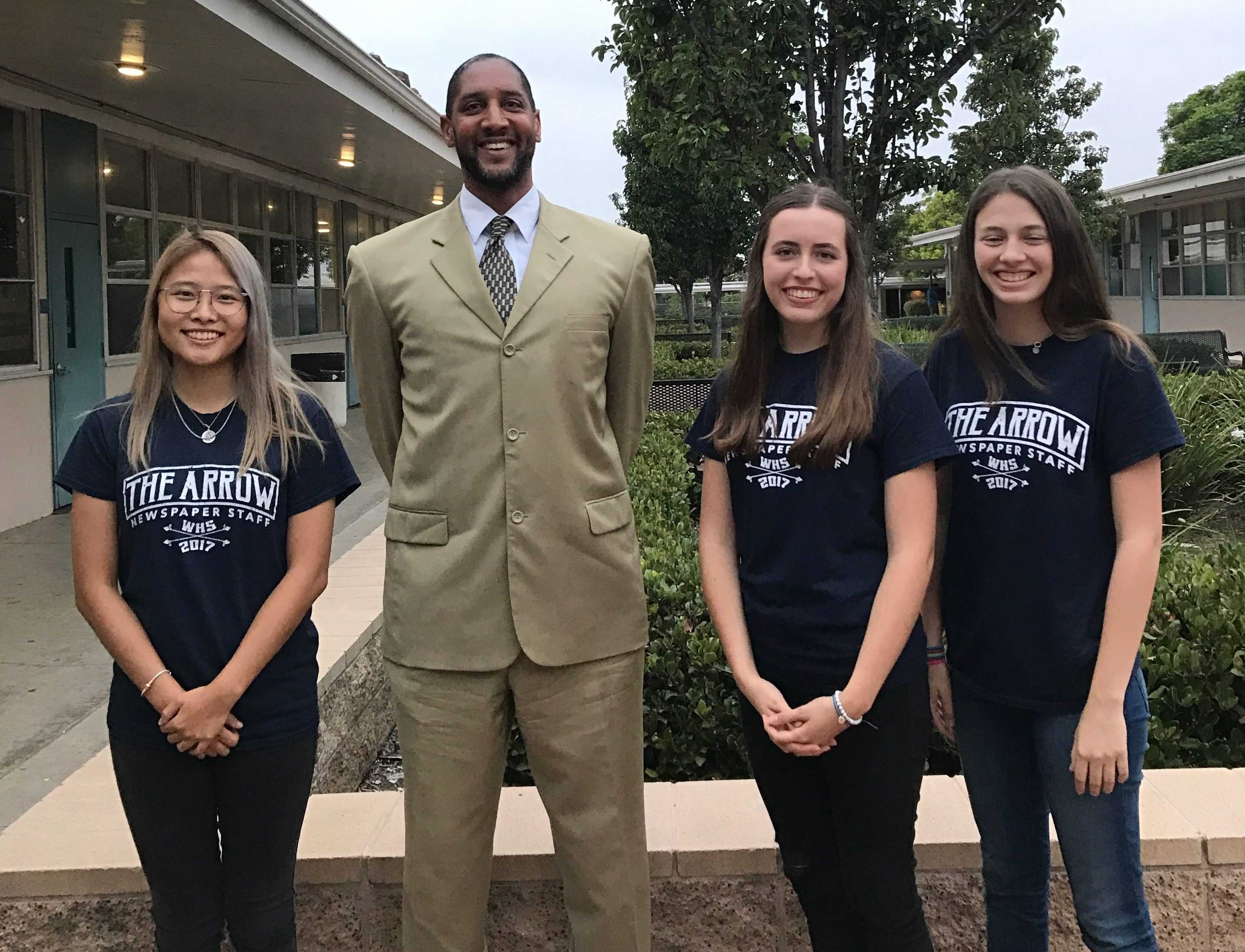
Marlon Delano Williams
So if you were on the school board last year, what would you have done differently?
Probably make sure that all of the papers that needed to go out to public when they were asked for was taken care of, because that was a big deal last year it sounds like. Other than that I couldn’t tell you what I would have done differently.
What was your take on the core literature policy 6161 and then how it was passed and how it was implemented?
Okay, so it’s a big thing that students are all learning and reading and that we offer books, and as students we are offered books that are assigned, I guess, to read. This is about the whole thing … the asterisk thing and all that? [Megan: Yeah.] The good thing is that now we have choices, so that’s what has brought up a lot of this, is that people now have the choice if they would like to read a book or not and the option to read another book. Again there is always a parent involvement which is great, because we need more parent involvement and more parents that speak, you know, saying, “Hey, this is not acceptable for my children. I think that we should have more options.” If there are things that are unacceptable or probably inappropriate in the parents’ views for their children, for our students in our schools.. So, again, as long as we have the choice to read something, then I would say go for it.
So, this is sort of extending on a similar subject, but what role do you think parents should play in their children’s education, specifically maybe in choosing the curriculum?
That’s, okay so I think that parent involvement is one of the biggest core aspects of a child’s educational development. I think children need to have their parents involved, at least more in school. I know that some students say, “Oh, mom, dad you know you’re here at school,” or something, they don’t like their parents being at school or something, but actually there’s a lot of benefits for, you know, parent involvement. So I would say if we could get more parents involved in their children’s education, let’s try to do that.
So, besides the book policy, what do you think are the most important issues this election and what are your stances on them?
Okay, so I don’t know how they select the books, I really don’t, but if there are cases that are in the book that are not age appropriate, then I would say that we can’t use those books. There’s, you know, the whole selection is … Just go and read a book, you know. We have libraries here, and I think that we should probably be reading more. There are a lot of issues that are going on in our society that we face, and I think reading about them, if it’s not in a newspaper, if it’s in a book, if it’s not in a book, it’s on television, if it’s not on television, I mean, people are getting it somehow, some way, but at least it is in an educational environment and, I would say, is managed by the educator, the teachers is better, so this, so I don’t think there should be issues with books. Again, we also have parent involvement and if parents do not feel the books are appropriate for their children, then they’re probably not, at least for, you know, their children.
Are there any new programs that you’d like to see added to the school system?
Yes, I do. We are facing, I think, a lot of environmental issues, and they’re not brought up, especially with all of you becoming adults, we are seeing this huge shift and change just in environmental stuff. If there are any programs I would like to see added to the schools, if we can educate children on how to manage our surroundings, I’d say by like recycling, recycling programs, and properly disposing of our wastes, using alternate sources of energy that is not so impactful, impacted on the environment, I would like to see more solar use in our schools, and also with just children becoming more environmentally conscious.
Note: Candidates are listed in alphabetical order.
